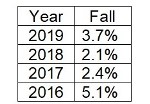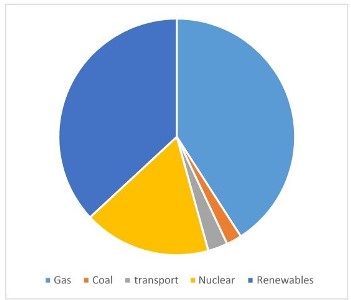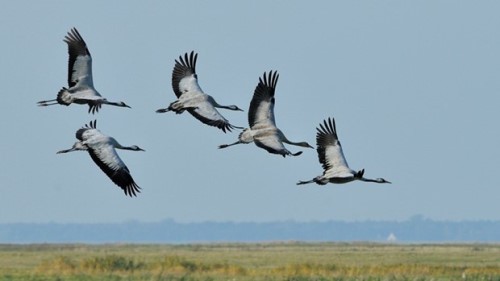Covid-19, Climate Change, the Great Crane Project, BTV (before the virus) Projects, Other Projects, Emergency Projects, Pulling Chestnuts out of the Fire and Captain Tom Moore
REPORT
By Miles Shepherd
Executive Advisor & International Correspondent
Salisbury, England, UK
INTRODUCTION
It is now some six weeks since UK went into lockdown and in that time the best and the worst of the British character has come into focus. We have seen inspiring efforts from a wide range of people, ranging from small children to centenarians and from para-medicals through to senior medical staff as well as the many people who keep the supermarkets supplied with essential supplies and a host of other workers now recognised as essential – I hope we can all demonstrate our appreciation in due course.. In case you missed these, I will briefly mention some that I found particularly heart-warming a little later.
The project world has been affected by the pandemic with some projects being held back, others struggling on and a few suddenly appearing in response to the urgent needs of this country. All these will be mentioned in this report.
I mentioned last month that here in UK, we had the great benefit that BREXIT has been pushed off the front pages but it is slowly coming back into our consciousness, if only via minor comments about lack of progress from negotiators with no wider responsibility than narrow trade interests. Is anyone surprised at that, given the scale of other matters occupying governments around the world? I do wonder, though, whether this a sign that we are returning to some form of normality.
For many in the project world, it is difficult to remember BTV (Before the Virus) but most people seem to have established their routines, tedious as some are finding them. It is clear that many people are refusing to abide by the rules which is likely to prolong the need for lockdown.
This month we look at some BTV projects that have been reported despite the dominance of lockdown reportage in the media; rail seems to have been prominent while there have been some emergency projects to examine. The strategic implications of COVID-19 will undoubtedly affect the project world so there is a review of some possibilities
CLIMATE CHANGE
It is interesting to see how many postings on social media highlight the impact of lockdown on the environment. Levels of smog and greenhouse gases have fallen dramatically, not just in UK but all over the world. Similarly, sea areas around places like Venice have become clean and the waters of some of India’s most polluted rivers are drinkable once more. It is remarkable that people still cannot see the damage we do to the environment and just how we can shift the balance. I wonder how long such improvements will last once life returns to some semblance of normality. UK campaigners will also be cheered to learn that an official report has found that of the UK carbon footprint, half originates from goods manufactured overseas but the reduction in use of non-renewable fuels is offset by our imports.
Despite the mixed messages on the environment, it is encouraging to see that wind farms are providing a large and increasing proportion of UK energy. Annual greenhouse gas emission fell by their largest amount in 3 years as output from wind farms output grew to a record high. This 3.6% reduction is the 7th successive year of declining emissions. Annual declines over the last 4 years are:


UK Sources of Energy
All this improvement in the UK climate leads on to an improvement in conditions for our fauna. The latest project by Butterfly Conservation reports the results of their annual census with several species showing substantial increases. Tom Brereton, associate director of monitoring and research at Butterfly Conservation, said: “The results from the 2019 season are really encouraging and provide evidence that the overall rate of decline of butterflies is slowing and for some species being reversed. Reasons for this include positive conservation through agri-environment schemes, increased woodland cover, climate warming, increases in grazing levels by wild animals and a slowing in the rate of agricultural intensification.”
Another long-term project is bearing the fruits of its labours. In 1979, a small number of wild cranes returned to Norfolk. Conservation groups have been working together to encourage the species, In 2010, the Great Crane Project reintroduced birds to the Somerset Levels. Similar projects were launched in Scotland and Wales in 2012 and 2016 respectively. The conservation project has yielded impressive results, with as many as 47 of the 56 pairs attempting to breed, raising a total of 26 chicks in England alone last year.

Common Cranes – highest recorded population in 400 years. Image: RSPB and Nick Upton
More…
To read entire report, click here
How to cite this report: Shepherd, M. (2020). May 2020 UK Project Management Roundup, PM World Journal, Vol. IX, Issue V, May. Available online at https://pmworldlibrary.net/wp-content/uploads/2020/04/pmwj93-May2020-Shepherd-UK-Regional-Report.pdf
About the Author

Miles Shepherd
Salisbury, UK
![]()
Miles Shepherd is an executive editorial advisor and international correspondent for PM World Journal in the United Kingdom. He is also managing director for MS Projects Ltd, a consulting company supporting various UK and overseas Government agencies, nuclear industry organisations and other businesses. Miles has over 30 years’ experience on a variety of projects in UK, Eastern Europe and Russia. His PM experience includes defence, major IT projects, decommissioning of nuclear reactors, nuclear security, rail and business projects for the UK Government and EU. Past Chair, Vice President and Fellow of the Association for Project Management (APM), Miles is also past president and chair and a Fellow of the International Project Management Association (IPMA). He was a Director for PMI’s Global Accreditation Centre and is immediate past Chair of the ISO committee developing new international standards for Project Management and for Program/Portfolio Management. Miles is Chair of the British Standards Institute’s Committee on Project, Programme and Portfolio Management and has been involved in the development of Uk’s BSI 6079 for more than 25 years. He was involved in setting up APM’s team developing guidelines for project management oversight and governance. Miles is based in Salisbury, England and can be contacted at miles.shepherd@msp-ltd.co.uk.
To view other works by Miles Shepherd, visit his author showcase in the PM World Library at http://pmworldlibrary.net/authors/miles-shepherd/.









